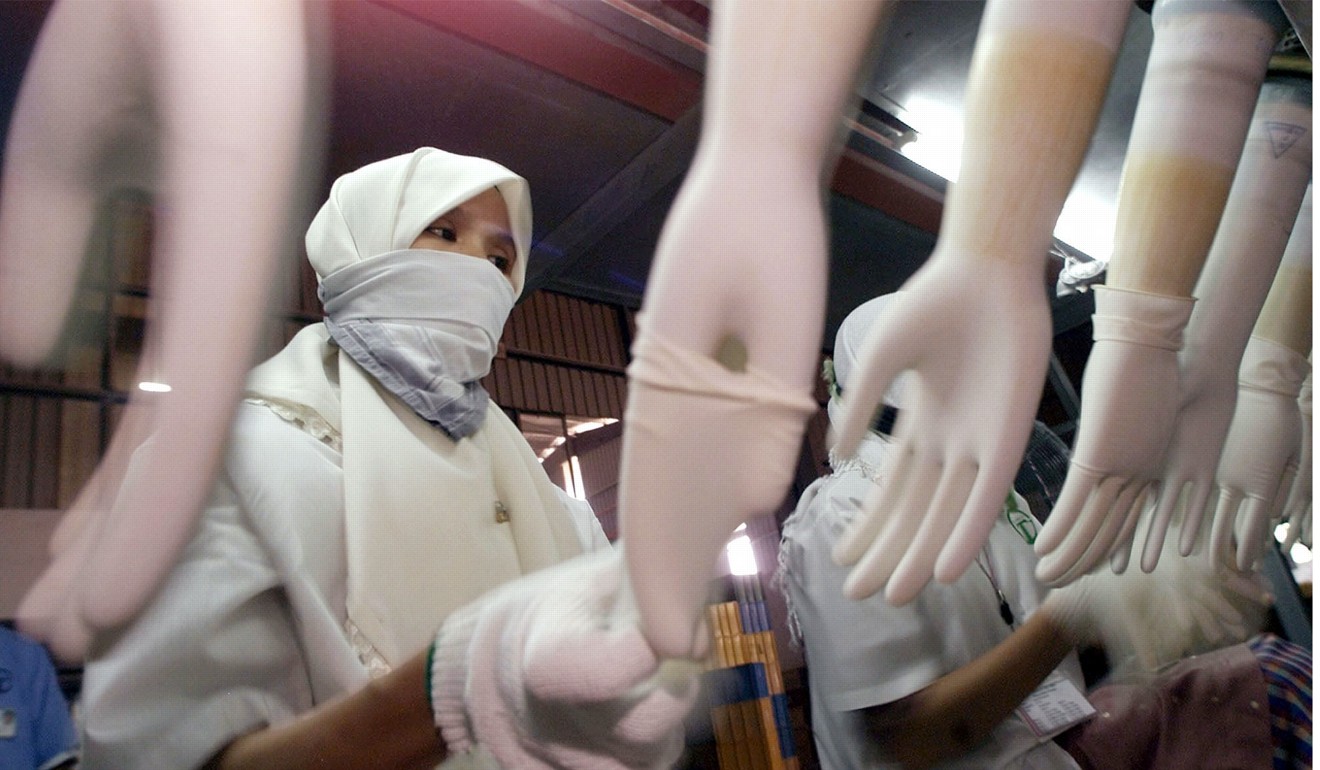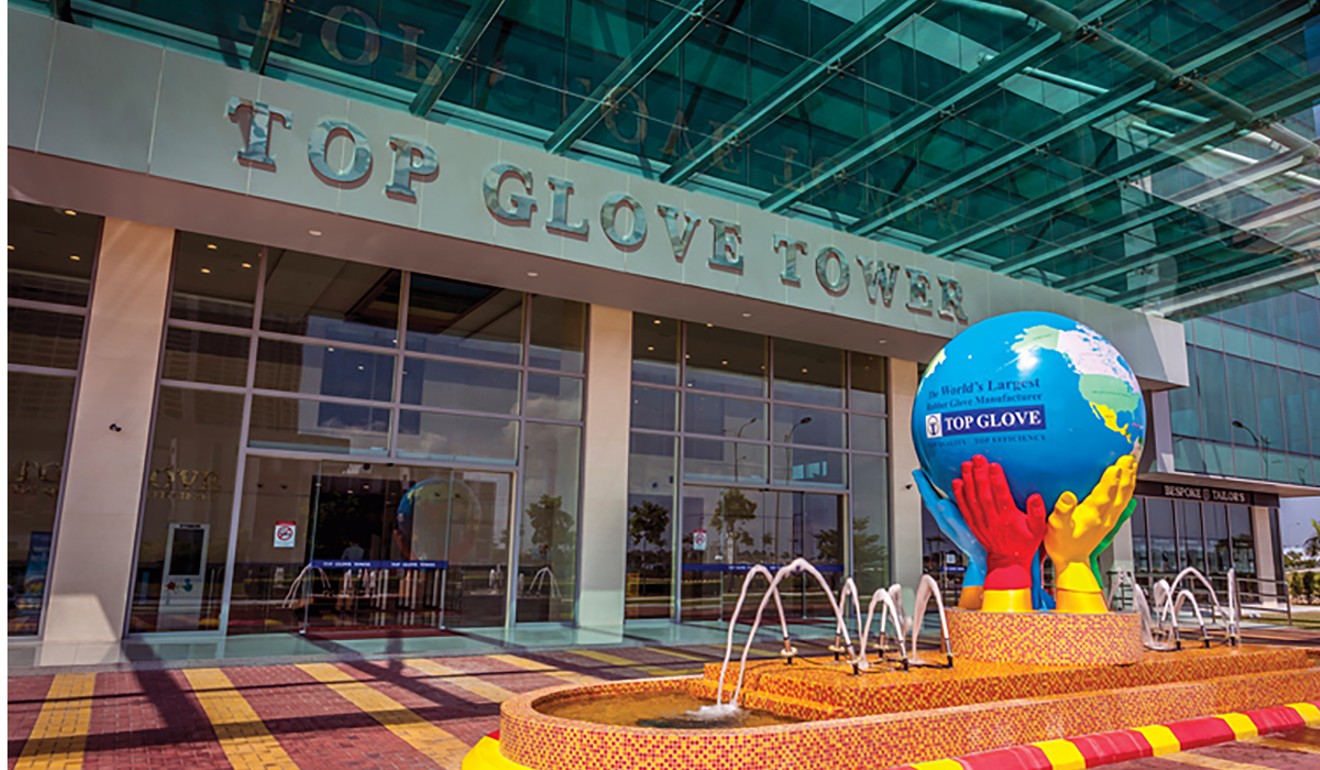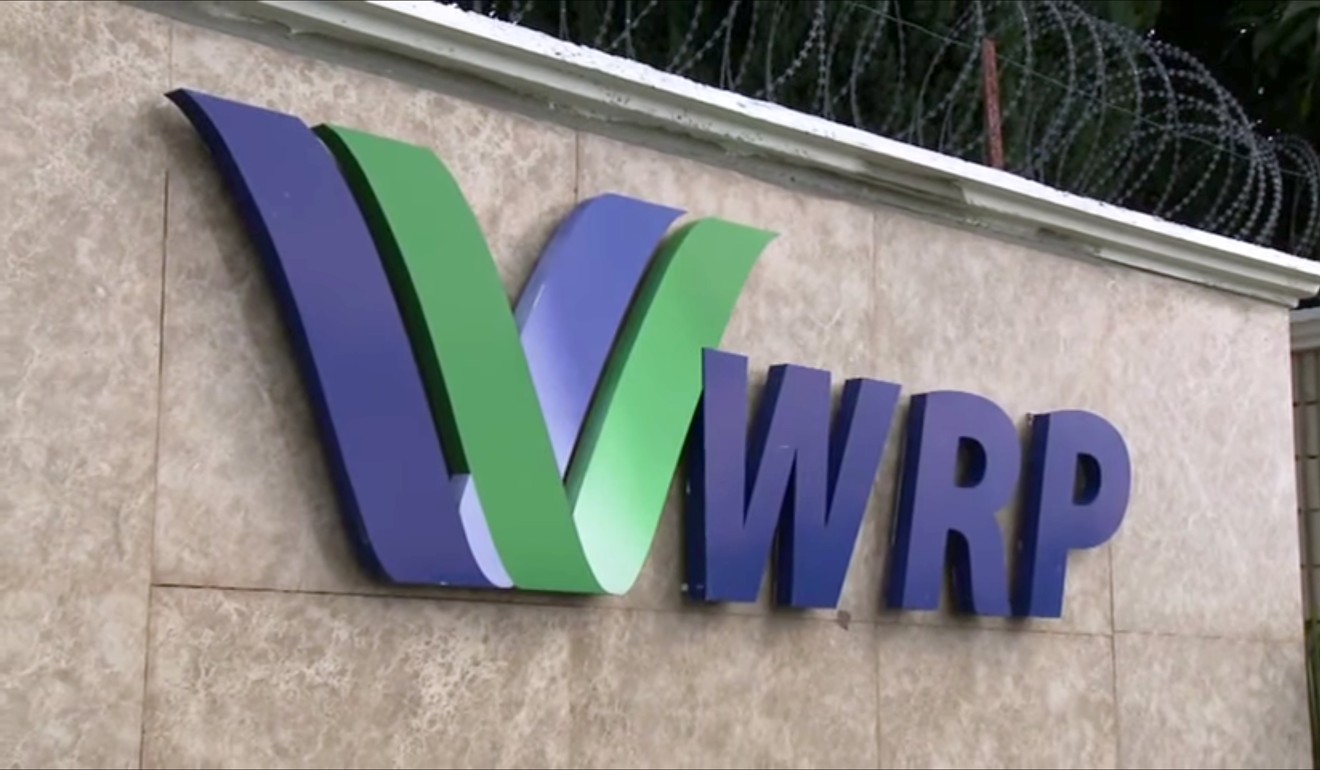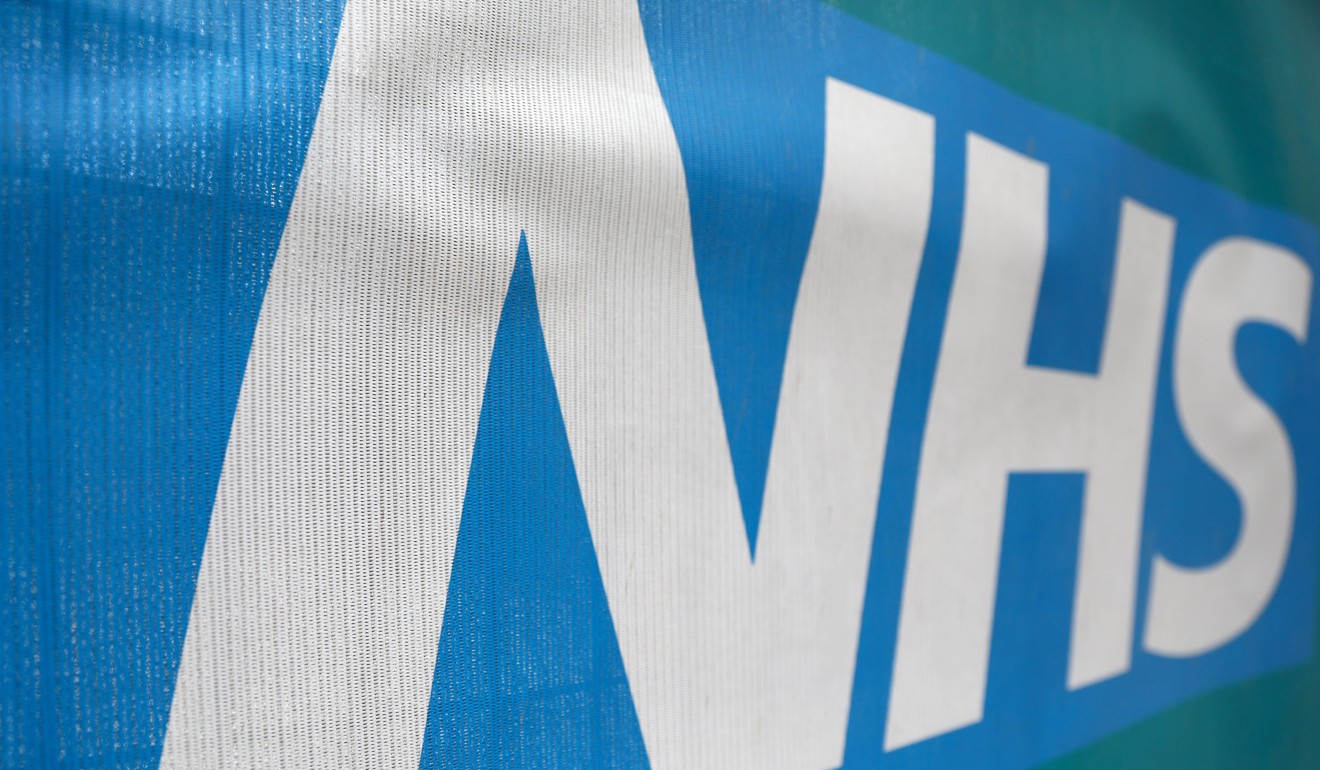
Malaysian factories accused of ‘forced labour’ make rubber gloves for Britain’s health service
- Workers from Nepal and Bangladesh subjected to forced labour, debt bondage, withheld wages and passport confiscation, UK media reports claim
- Top Glove and WRP denied conditions in their factories were a violation of workers’ rights
Britain is launching an investigation into medical gloves used by its health service after reports of forced labour, forced overtime, debt bondage, withheld wages and passport confiscation in Malaysian factories where they were made.
“In line with the government’s policy and leadership on modern slavery, we take any allegations of this kind incredibly seriously,” said a spokeswoman for Britain’s health department, adding that the issue would investigated “as a matter of urgency”.
A Guardian investigation revealed at least two companies supplying rubber gloves to the NHS – Top Glove and WRP – are allegedly subjecting thousands of migrant workers from Nepal and Bangladesh to exploitative working conditions.

Top Glove – the largest rubber glove manufacturer in the world and one of the biggest employers in Malaysia, with 40 factories – and fellow manufacturer WRP both produce gloves for multiple brands supplying NHS Supply Chain, the organisation which has a 40 per cent market share of medical goods bought by NHS hospitals and clinics in the UK.
Our human/labour rights and health initiatives exceed those of the glove industry average
Top Glove workers – eight from Nepal and eight from Bangladesh – claimed their factory was “mental torture” where they had to work seven days a week, at least 12 hours a day, with only one day off a month. Their shirts were each branded with the Top Glove logo: “Be honest and no cheating.”
All 16 alleged they had their passports involuntarily held by the company and were unable to get them back on request, while reportedly “unsafe” factory conditions at Top Glove meant limbs had been lost in accidents.
Although Top Glove declined to respond directly when asked for comment, it released a statement
in which it conceded that excessive daily overtime was a problem.
“Lengthy working hours are our main concern and we continue to explore every possible way to address the issue of our workers’ excessive daily OT,” the company said.
Top Glove denied the conditions in its factories were a violation of workers’ rights, emphasising that it complied with “local labour law requirements” and had won a number of human resources awards.
“Top Glove adopts a zero-tolerance policy with any regard to the abuse of human’s rights at all levels,” said the statement. “In fact our human/labour rights and health initiatives exceed those of the glove industry average.”

Three workers from WRP – which produces the gloves for lines stocked by NHS Supply Chain – told of excessive overtime, confiscation of passports and illegal withholding of pay.
I can’t send the money back to my family who need it. They are asking me where it is
The workers also claimed they were “trapped” and not allowed to leave the WRP factory, except on Sundays. The Guardian had to conduct interviews through the factory fence.
“It’s been three months already and we have had no pay; it is very very hard,” said one Nepalese worker at WRP, who declined to be named out of fear for his safety. “I can’t send the money back to my family who need it. They are asking me where it is.”
A potential client who visited the WRP factory in Malaysia, and asked not to be named, said he had been shocked by what he had witnessed and claimed the overall working conditions were some of “the worst he had ever seen”, where factory temperatures were up to 70 degrees Celsius and more than 3,000 workers housed in a hostel built for 1,800.
WRP chief executive, Lee Son Hong, denied the allegations as “baseless”, saying the company had “never forced any worker to work 12 hours a day without a day of rest in a week”.
“We are appalled that the issue of withholding pay and payment is made once every three months is brought up as we pay monthly wages according to the Malaysian Employment Act,” Lee said.
Lee also denied workers were not free to leave the factory premises and they do not confiscate workers’ passports, but kept them in accessible lockers. “Our workers want us to keep their passports for safekeeping,” Lee insisted.

The allegations suggest conditions at both Top Glove and WRP factories would meet several of the International Labour Organisation’s criteria for modern slavery and forced labour, including withheld identity documents, debt bondage and excessive overtime.
When I wake up every morning I am filled with dread
Activists accused Top Glove, which this year reported a record profit of almost £1 billion (US$1.3 billion), and fellow glove giant WRP of taking advantage of the desperation of migrant workers, who go to Malaysia because of the lack of work and high poverty levels in Bangladesh and Nepal.
Payslips seen by The Guardian seemed to indicate workers often worked between 120 and 160 hours of overtime a month, exceeding the 104 hours allowed by Malaysian law.
The payslips also seemed to show that, despite it being written into their contracts, workers only received double overtime pay for four of the 12 hours they worked on Sundays, their one rest day a week, depriving them of thousands in wages every year.
Production targets were also reported to be extremely high.
Some workers alleged they had to package 15,000 gloves in one day, while one worker claimed his daily target had increased by 400 per cent over the past year. If they did not meet the targets, they said money was deducted from their pay.
A 22-year-old Nepalese worker on the Top Glove production line said: “When I wake up every morning I am filled with dread. I think: ‘How can I get through the next 12 hours of working? I don’t know if I can do it any more.’ But what can we do? Lots of workers have mental breakdowns in the factory and have to pay to go back home. Top Glove factory is mental torture.”
Top Glove admitted it took workers’ passports but said it was only for “safekeeping” in a locker to which workers had access. “We do not confiscate workers’ passports,” said the company in its statement. Top Glove said it had a foreign workers’ passport safekeeping policy, to which workers had agreed by signing a consent form.
This was not reflected in any account given to The Guardian.
Workers claim that for months, sometimes years, much of their salary went towards paying off the debt they had incurred to got and work for Top Glove.
Bangladeshi immigrants who spoke to The Guardian claimed they paid 18,000-20,000 ringgit (£3,300-£3,700) in recruitment fees to get the Top Glove factory job, while Nepalese migrants claimed to have paid up to of 7,000 ringgit (£1,300) in fees to work for Top Glove in Malaysia, leaving them in high levels of debt bondage. These fees were passed down through agents back in Nepal and Bangladesh.
Top Glove denied imposing recruitment fees higher than 20 per cent of the workers’ salary. “Top Glove only imposes recruitment fees as allowed by the local authorities, and the government of workers’ source countries,” said the statement.

Factory production lists seen by The Guardian, and brands and suppliers named by workers inside the factory, confirm the Top Glove factories in Malaysia are producing medical and surgical gloves for companies that supply NHS Supply Chain.
An NHS Supply Chain spokesperson said: “NHS Supply Chain takes all allegations of labour abuses in its supply chain very seriously, and we have range of contractual arrangements and initiatives in place to try and prevent such situations arising.”
“We will be taking immediate steps with our suppliers to investigate the labour standards issues that you have identified and take action to responsibly address verified issues as appropriate.”
David Thomas, the UK deputy high commissioner to Malaysia, told The Guardian he was aware of the allegations and was “raising them with local authorities and alerting UK supply chains”.
Additional reporting by Reuters

